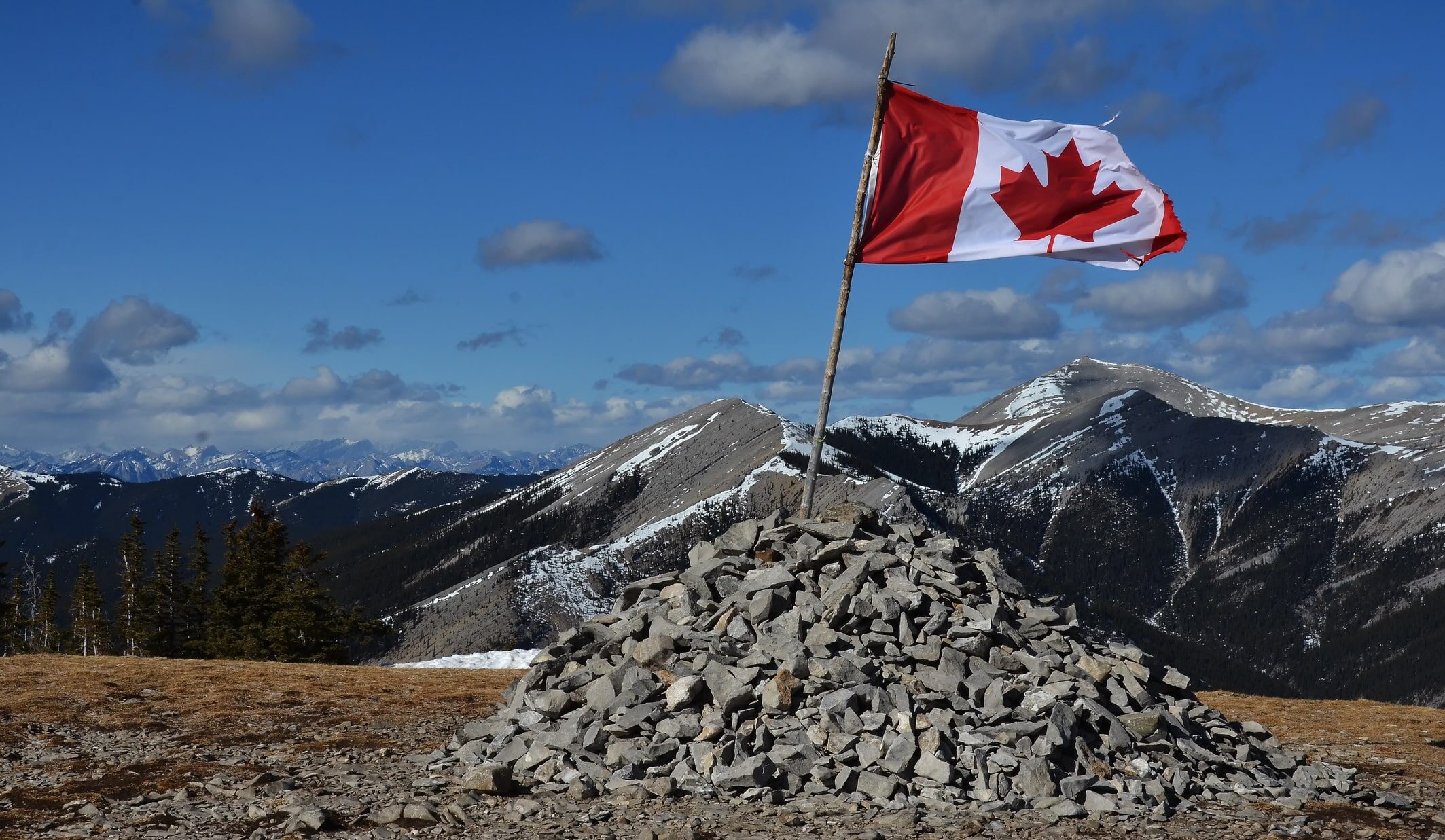The Enduring Tension: Capitalism and the Moral Order
By Donald J. Devine
(Encounter Books, 2021)
What does it mean to be an American? A Westerner? A democrat? A capitalist? As the political tumult of recent years has shown, these questions are by no means settled. When the foundations of social order are contested, things get rowdy.
A capable scholar and adviser to some of the great men of our age, Donald Devine is well qualified to guide us as we revisit these issues. The Enduring Tension shows that answering the last of the above questions requires answering the other three as well. This book is not merely another paean to capitalism, although Devine is not shy about extolling its benefits. Instead, it is a broad social-philosophical work that reevaluates the sources of capitalism’s legitimacy.
The first part of the book is eclectic and wide-ranging. This is by necessity. To evaluate the moral foundations of capitalism, thinkers need to be familiar with many discussions in economics, history, and religion, among other fields. Devine does a good job presenting, summarizing, and interpreting the relevant conversations. For readers who are not familiar with these arguments, the going can be difficult. But there is no way to evaluate “the historical, scientific, moral, and philosophical assumptions that underlie the criticisms of capitalism” without laying this groundwork.
The first chapter tries to pinpoint the meaning of capitalism. The term was popularized by Marx, but there are now almost as many different definitions as there are theorists. Devine tries to get at the heart of the matter by considering the origins of free markets and limited government. He also discusses the so-called Great Enrichment: the massive increases in living standards for the masses that began during the Industrial Revolution.
Chapter 2 is more conventionally historical. Ranging from speculative analyses of prehistorical humanity to the rise of the nation-state, Devine shows that the morality (or lack thereof) of markets depends on foundational questions of social order. He perceives a “weakening commitment to crucial capitalist ideas like freedom, property rights, limited government, and hard work.” If its moral foundations are eroding, how can capitalism be sustained?
Conventional wisdom holds that capitalism must be rationalized: its extremes must be moderated by enlightened bureaucracies. Economic and social inequalities are genuine moral problems. Yet bureaucratic strategies have an uninspiring record of addressing them.
The first part of the book thus culminates with an in-depth look at the U.S. administrative state. Drawing on Ludwig von Mises, Devine correctly notes that the public sector “lacks a sophisticated internal signaling device for quality control . . . so it has no meaningful way to judge whether a decision is rational.” Even worse, Congress is incapable of reining in these agencies, despite the theoretical supremacy of the legislature. This creates a system that lacks democratic accountability. Even if we grant that it was inspired by good intentions, the attempt to “rationalize” capitalism simply has not worked.
The second part of the book, no less broad, is called “Looking Forward.” Devine turns from considering how we got here to what we should do about it. What we need is radicalism, in the true sense of the word: getting at the root of the problem. The next three chapters caution us against illusory solutions. The last chapter offers a real solution.
First, Devine turns a critical eye to science and the scientific method, the supposed underpinnings of modern public policy. But science is no panacea for governance. When we try to make politics scientific, all we do is make science political: “Scientists are not neutral about the subjects that are close to their hearts and central to their livelihoods. They are necessarily invested in the methods and paradigms of their disciplines.” Building on Karl Popper and Friedrich Hayek, Devine distinguishes constructivist rationalism from pluralist rationalism. Only the latter is truly scientific, but its ability to facilitate social control is highly limited.
Next, Devine presents the heart of his argument. Markets have ethical prerequisites, including “respect for the human individual; severability of property; prohibitions on coercion, theft, and fraud; a positive attitude toward work; and a morality of thrift, encouraging capital savings and lending.” The challenge is to sustain these prerequisites. Today’s centralized political arrangements do the opposite. With everything of consequence being done in Washington, D.C., the stakes of politics become too high while the rewards of personal virtue become attenuated. This fosters bad habits and social conflict rather than reducing them.
The final chapter asserts that we are at a crossroads. We can choose a “conception of humanity that sustains and justifies a pluralist, capitalist social order” or we can choose a centralized, administrative social order devoid of enchantment. Devine persuasively argues that the unique synthesis of Athens and Jerusalem embodied in the Western social order can only be sustained if we affirm not just the utility but also the reality of its moral underpinnings. The only alternatives are the weary resignation of stoic individualism or the rabid megalomania of Nietzschean individualism.
Back to the Sources
Devine’s book can be difficult to read. Given the turns and tangents, readers may miss the forest for the trees. But for disciplined readers, The Enduring Tension is worth it. Even those who disagree with Devine cannot afford to overlook this book. The moral foundation of capitalism is a perennial issue, but in recent years it has grown into one of the few public conversations that really matter. This book should have a place in that conversation.
There are two arguments within The Enduring Tension I want to highlight for special consideration. It is a happy aesthetic coincidence that they occur at the beginning and at the end of the book. The first concerns the origins of capitalism and its place in the story of social orders. Are capitalism and its related institutions a modern usurpation, which denigrate man’s natural sociability? Or do they grow out of previous institutional arrangements, an evolution rather than a revolution? Devine asserts the latter, and I agree.
Many conservatives, such as Patrick Deneen in Why Liberalism Failed, see market liberalism as parasitic on humanity’s accumulated social and cultural capital. They also see market liberalism as a break with ancient political-economic wisdom, more a product of power than of prudence. It is true that political power, especially the post-Westphalian state, and the historical development of capitalism went hand in hand. But it is not true that the network of market-friendly institutions we now call capitalism derives from rationalistic innovation.
Thinkers as diverse as Marx and Hayek located the origins of capitalism in the High Middle Ages. This is because the origins of pluralist liberalism, the kind that reached its intellectual flowering in the Scottish Enlightenment, trace back to medieval times. Building on the work of McGill University political philosopher Jacob Levy, Devine writes that the protections afforded to liberty by a “ ‘tremendous proliferation’ of pluralist organizations—universities, cities, the papacy, bishoprics, regional churches, independent military orders, commercial enterprises, guilds, and monastic orders” were a necessary precondition for market economies. To paraphrase Hayek, modern liberty has its roots in ancient liberties.
This is not to say that thirteenth-century Europe was a classically liberal paradise. Proto-liberalism is not liberalism. But as I argue in my own scholarly work, the highly fragmented nature of political power placed significant checks on predation, which in turn generated a widespread respect for property rights. Given this progression, it does not make sense to view liberal market economics as some alien social arrangement, dreamed up by philosophers in love with their abstractions. Instead, capitalism flows coherently, if not always smoothly, from the development and refinement of the Western tradition.
The second claim, at the end of the book, concerns the relationship between the cultural tradition and capitalism. Devine’s closing paragraph reads as follows: “The moral assumptions of the Western traditional mythos, in which individuals have been created free and equal, are indispensable to legitimizing a pluralist, federalist, traditionalist, capitalist society with free markets and localized powers under a limited central state—a society where liberty and order coexist in creative tension. If its legitimizing source is forgotten or denied, one can assume, with Schumpeter, that the civilization will likely fail.” There are two hypotheses here. First, that capitalism is congruent with and flows out of the “Western traditional mythos.” Second, that without this mythos, capitalism cannot survive.
The conjunction of these hypotheses deserves special attention. Devine closes his book with a familiar invocation: in essence, he asserts both the truth and the utility of fusionism. Those familiar with the history of conservative thought know that if you gather ten conservatives in a room and ask them to define their philosophy, you will get twenty different answers. The synthesis of political and economic liberalism with social and cultural traditionalism that we call fusionism is a family of ideas that commanded a consensus among previous generations of conservatives.
Now fusionism is under siege. A new kind of conservative, optimistic about using state power to advance the common good, regards fusionism as a relic, a “dead consensus” best abandoned. Devine implicitly pushes back against this. Private property, freedom of contract, and the rule of law flourish in an environment of reasonable pluralism, in which the stakes of politics are not too high. But today’s new right raises the stakes of politics by design. Fusionist conservatism is more comfortable with unresolved political disagreement, in part because it occurs against a backdrop of a sustained sociocultural consensus.
The new right would reply that such a consensus is fraying. There are signs this is so, in the form of depreciated cultural capital and declined communal engagement. The crucial issue is whether these developments are caused by political and economic liberalism. Adam Smith, the godfather of liberal economics, wondered about the corruptive effects of markets on morals. Conservative economists of the twentieth century also worried about market erosion of moral foundations. Wilhelm Röpke, for example, argued that liberal political economy required a preexisting moral reserve, which must be continually renewed by citizens themselves in nonmarket contexts.
Then again, there is a growing social science literature suggesting that markets generate moral reserves rather than draw upon them. For example, a recent book by Virgil Henry Storr and Ginny Seung Choi, Do Markets Corrupt Our Morals?, argues that markets make us more ethical in our conduct. This will not completely satisfy those for whom “moral reserves” necessarily include religious belief, or at least a philosophy of life with robust conceptions of transcendence and meaning. But it does suggest that we are both adding to and subtracting from our store of capital at the same time.
Ultimately, the social and political consequences of capitalism is an empirical question. It cannot be answered by positing grand causal narratives in the history of ideas without careful analysis of the mechanisms linking ideas to institutions and to personal conduct. Devine’s contribution to this project is showing where the fault lines are in the ongoing dispute between conservatives. The debate is not going anywhere and will probably never be permanently resolved. For those comfortable with the tension between liberty and order, who can even find something creative and compelling in that tension, Devine’s conclusions give reasons for hope. That is something we sorely need.
Alexander William Salter is an associate professor of economics at Texas Tech University and a research fellow at TTU’s Free Market Institute.













